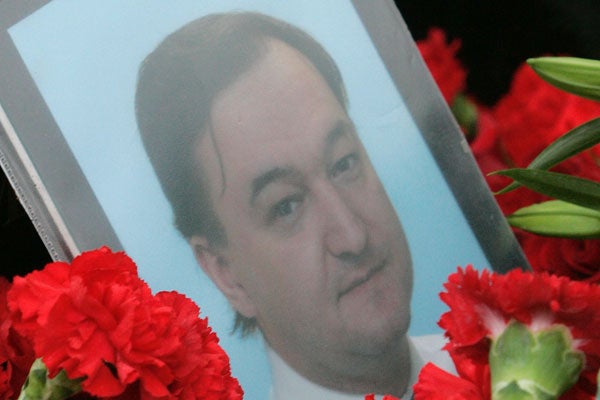Next week, the Obama Administration faces an important foreign policy decision in U.S. relations with Russia—how to champion human rights and the rule of law. The State Department is trying to avoid a gust of chilling wind from Moscow.
However, the last thing the Administration should do is show weakness to Moscow or subvert the will of Congress as stipulated in the recent Sergei Magnitsky Rule of Law Accountability Act of 2012 signed by President Obama last December.
Under the Magnitsky Act, the State Department is supposed to submit a list of corrupt Russian officials who are gross violators of human rights. The U.S. will then ban these violators’ travel to the U.S. and freeze any assets they hold in American banks. The State Department has until April 13 to compile such a list for implementation.
The Magnitsky Act’s intent is to name and shame the corrupt officials responsible for whistleblower Sergei Magnitsky’s brutal death in 2009 and send a message that the U.S. takes human rights violations in Russia seriously.
However, one of the law’s co-sponsors doubts Obama’s resolve to implement the list. Representative Jim McGovern (D–MA) created his own list of officials as he fears for how the Magnitsky Act will be enforced and whether the Administration’s list will have enough teeth. McGovern’s list includes 280 names, including Yuri Chaika, the Prosecutor General of Russia who closed the investigation into Magintsky’s death; the head of the Russian Investigative Committee; and numerous secret policy and law enforcement officials involved in this and other cases.
If Obama used McGovern’s list, it would fulfill the law’s intent to name and shame the officials responsible.
According to Foreign Policy, however, a State Department official said that the list would need to meet the standards of the Treasury Department’s Office of Foreign Assets Control (OFAC) “to develop a legally supportable case about everyone who is on the list.” But this is not the legislative intent.
McGovern sees the OFAC guidelines and other preconditions on the list as the Administration’s way of diluting the list to avoid offending Russia. He told Foreign Policy:
The administration knows exactly what the intent of Congress was when they passed this bill. They are going to take the most limited interpretation and find ways not to put anybody on the list. If that’s the course they want to take, they are going to receive some bipartisan pushback. I understand the political difficulty the administration might face, but if the administration were to take a limited view of the Magnitsky bill, it would be a wink and a nod to the hardliners in Russia that they won.
Many of McGovern’s colleagues, Republicans and Democrats, agree with him, even promising to pass another bill to expand the Magnitsky list. Support for a proper scope of the Magnitsky list is both international and bipartisan, showing that the U.S. and its allies in Canada and Europe are committed to human rights and the rule of law.
Previous Moscow responses to the Magnitsky Act only hurt Russian orphans or openly mocked the institutions of law. Today, Russia is amidst an unprecedented crackdown on civil society, and there is no better time to make America’s voice heard.
The ball is in President Obama’s court. We hope he chooses to stand with American values—and the bipartisan legislative intent of the U.S. Congress.
Benjamin Tigay is currently a member of the Young Leaders Program at The Heritage Foundation. For more information on interning at Heritage, please click here.

































One Reply to “President Obama Should Uphold the Magnitsky Act’s Legislative Intent”